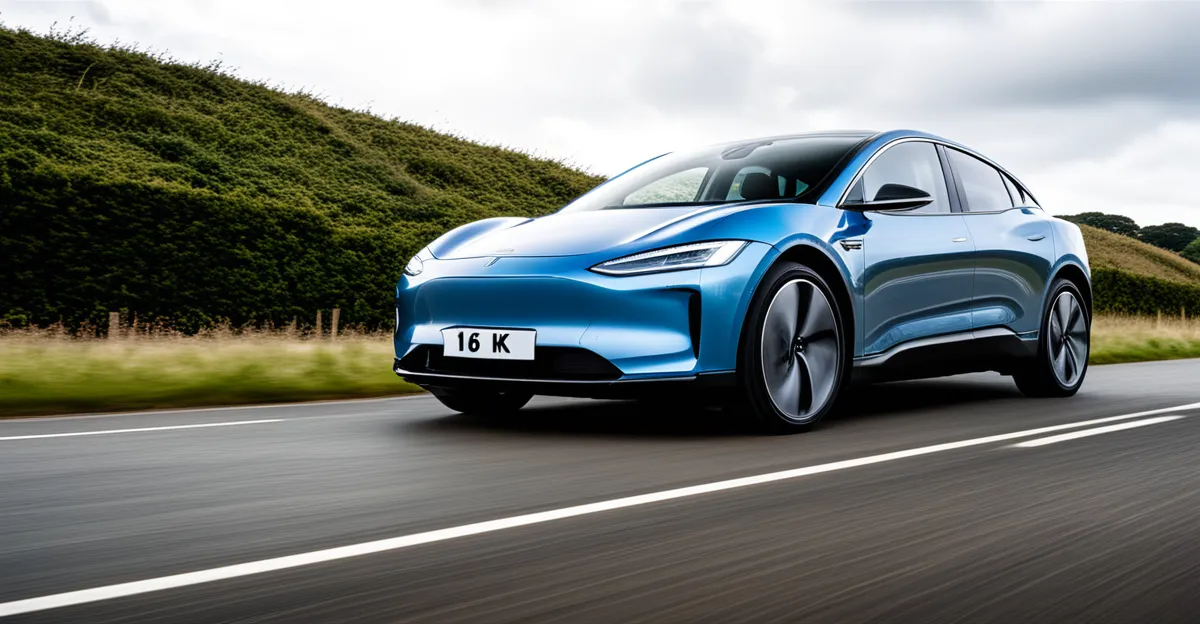Impact of Electric Vehicles on the UK Automotive Market
Electric vehicles UK have become a pivotal force reshaping the UK automotive industry trends. Market size changes reveal a rapid growth in EV adoption rates, with sales increasing year-on-year as consumers shift preferences towards cleaner, more sustainable mobility options. This surge is driven by rising environmental awareness, lower running costs, and government incentives encouraging buyers to choose electric.
The EV market impact extends deeply into the traditional automotive sector. Established car manufacturers in the UK are compelled to innovate or diversify, integrating electric models alongside conventional vehicles. This shift affects manufacturing focus and drives a reassessment of product portfolios, with many manufacturers accelerating their transition plans to meet evolving market demand.
This might interest you : How is the UK Automotive Industry Preparing for Future Challenges?
Consumer trends illustrate a marked preference for electric mobility, favoring vehicles that offer reduced emissions and advanced technology features. This trend impacts retail strategies and prompts dealerships to adjust their offerings. Overall, electric vehicles UK are not only expanding market size but also fundamentally changing purchasing behaviors and industry dynamics within the UK automotive industry trends.
Technological Advancements and Production Shifts
Technological innovation is at the heart of the electric vehicle technology revolution in the UK automotive landscape. UK car manufacturing plants are actively integrating advanced components such as high-capacity batteries, efficient electric drivetrains, and smart electronic systems. These innovations enhance vehicle performance while aligning with UK automotive industry trends focused on sustainability and digital connectivity.
Topic to read : How is the UK automotive sector responding to autonomous vehicle technology?
Shifting to electric production requires a thorough reconfiguration of existing manufacturing lines. Traditional assembly setups, designed for internal combustion engines, give way to modular and flexible systems accommodating diverse EV models. Supply chains also evolve; sourcing of battery materials and electronic parts becomes critical, demanding closer partnerships with global and local suppliers.
Collaboration between UK automakers and technology firms accelerates these advancements. Joint ventures enable the pooling of expertise in software, hardware, and energy management, vital for producing competitive electric vehicles UK consumers desire. This synergy not only turbocharges automotive innovation but also positions the UK as a hub for cutting-edge EV production, directly influencing the broader EV market impact.
Economic Effects and Employment in the Automotive Sector
The rise of electric vehicles UK is reshaping the landscape of automotive jobs UK by creating new employment opportunities while challenging legacy roles. The EV industry economics stimulate demand for specialised skills in battery technology, software development, and advanced manufacturing. This shift calls for comprehensive workforce transition strategies involving reskilling and upskilling programs to enable employees to adapt to new technologies.
Job creation in the EV sector extends beyond vehicle assembly. Roles in battery production, electric drivetrain design, and charging infrastructure installation are expanding, benefiting SMEs and allied industries. However, the UK automotive industry trends also reveal risks: traditional internal combustion engine roles may decline, necessitating proactive measures to mitigate unemployment.
Balancing these dynamics requires close cooperation between industry stakeholders and government bodies. Investment in training initiatives ensures workers are prepared for evolving job requirements, supporting a sustainable and competitive EV market impact. This economic transition underscores the importance of strategic planning to harness opportunities and ease disruptions within the automotive sector.
Charging Infrastructure and Energy Demand
The rapid growth of electric vehicles UK necessitates significant expansion in EV charging stations UK to support increasing user needs. Current infrastructure development focuses on installing fast chargers along highways and urban areas, easing range anxiety among drivers. Government and private sector investments play a crucial role, with funding directed towards modernising charging networks and deploying smart technologies for efficient energy use.
Energy demand challenges are critical. As EV market impact grows, electricity grid capacity must adapt to handle peak loads from simultaneous vehicle charging. Upgrades include grid reinforcement and integration of renewable energy sources to maintain sustainability. Without adequate preparation, the grid risks instability and increased costs.
Key strategies to meet these challenges involve coordinated planning between energy providers, policymakers, and automotive stakeholders. Innovations like vehicle-to-grid technology and smart charging management aim to smooth demand peaks. Addressing these issues ensures the UK automotive industry trends align with the sustainable growth of electrified transport and support widespread EV adoption.
Supply Chain Transformation and Sourcing
The transition to electric vehicles UK demands a profound overhaul of the EV supply chain UK, shifting focus from traditional internal combustion engine parts to critical battery components. Battery production is now central, with lithium-ion cells, cobalt, and nickel becoming pivotal materials. Ensuring local sourcing within the UK bolsters supply security and reduces dependency on volatile global markets.
The UK is positioning itself as an emerging hub in global battery manufacturing, attracting investments to scale production capacities and develop advanced battery technologies. This effort supports the broader UK automotive industry trends towards sustainability and innovation. However, securing raw materials poses challenges, given ethical and geopolitical concerns linked to mining practices and supply stability.
Opportunities arise in recycling initiatives aiming to recover valuable battery materials, fostering a circular economy in EV supply chains. Close collaboration between manufacturers, mining companies, and policymakers is essential to address risks and optimise sourcing strategies. This holistic approach ensures the EV market impact not only accelerates electrification but also advances responsible and resilient supply chain transformation in the UK.
Government Policies and Industry Regulation
Government action is a cornerstone in accelerating electric vehicles UK adoption. The UK EV policy framework includes subsidies and tax incentives that reduce upfront costs for consumers, making EVs more accessible. These policies align tightly with green automotive regulations designed to meet the UK’s ambitious zero emission targets.
Key legislation mandates progressive tightening of emissions standards, pushing manufacturers to expand their electric model offerings. Compliance with these regulations ensures the UK automotive industry trends stay on course toward sustainability. Incentives cover not only vehicle purchases but also infrastructure investments, supporting comprehensive EV market development.
Challenges remain in harmonizing regulatory frameworks with rapid technological advances. Industry stakeholders must navigate standards that evolve alongside EV market impact to avoid bottlenecks. The regulatory environment also promotes innovation by encouraging automakers to meet or exceed emission benchmarks.
Ultimately, the collaborative policy and regulatory approach fosters a stable environment for investment while safeguarding environmental goals. This balance is critical for sustaining momentum in the UK’s transition to electric transport and fulfilling national climate commitments.







